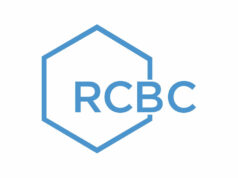DBS sees hikes worth 75 bps from BSP in 2019
By Melissa Luz T. Lopez
Senior Reporter
A GLOBAL BANK sees additional rate hikes from the Bangko Sentral ng Pilipinas (BSP) in 2019, citing the need to keep up with rising global yields despite the string of rate increases fired off this year.
Analysts at DBS Bank said they expect a fresh round of hikes next year despite a total of 175 basis points (bp) announced by the central bank from May to November, which they said would keep local yields competitive.
“We think that another 75bps of hikes would take place by mid-2019,” DBS economists Philip Wee and Eugene Leow said in a report released on Friday.
The Monetary Board announced a fifth consecutive tightening move last week worth 25 bps, which they described as a “proactive” move to further temper price pressures even as inflation has been moderating.
“[P]olicy settings in the Philippines are still too accommodative given where headline CPI (6.7% year-on-year) is and the rate hike is justified. However, given the BSP’s focus on growth (and that inflation is peaking) and relatively dovish slant, a fifth consecutive hike suggests that the governor is more hawkish than previously thought,” they added.
Economic growth slowed to 6.1% in the third quarter, bogged down by softer household consumption at a time of surging consumer prices. Still, monetary policy makers said the fresh rate hike remains appropriate as the above-six percent growth rate shows that the economy remains “resilient and robust” despite rising borrowing costs.
Benchmark rates now range from 4.25-5.25% effective last Friday. The key policy rate is now at 4.75%, the highest since March 2009.
On the other hand, other market observers said the BSP has the scope to keep rates steady for the rest of 2019 as inflation is finally easing.
“Accordingly, we expect the BSP to remain on hold next month. Should oil prices remain steady, the effective execution of supply-side measures by the government should provide the central bank with room to keep rates on hold in 2019, in our view,” ANZ Research said last week.
Analysts at Capital Economics noted that falling global oil prices, easing food costs and base effects will allow headline inflation to settle back to the 2-4% target range “by the middle of next year,” allowing the BSP to end its tightening cycle.
BSP Deputy Governor Diwa C. Guinigundo said last week that prices will significantly go down and will extend “flexibility” for the central bank to digest the recent string of rate hikes.
Inflation is now expected to decelerate in the coming months, although 2018 inflation is still expected to clock in at 5.3% versus the 3.2% average in 2017. Prices of widely used goods are seen to drop sharply next year to 3.5%, back within target.



